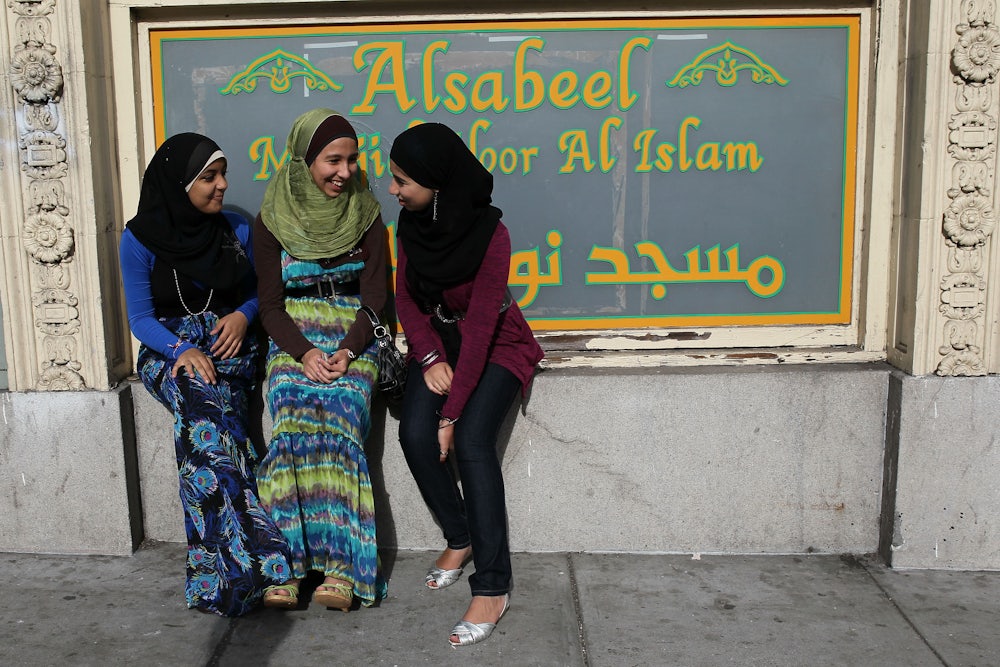So now I’ve read in multiple places (e.g., Ali-Karamali per my summary the other day, and the recent piece in the Washington Post) that hijab-wearing may connote to the wearer a commitment to observing her religion faithfully, but that there are many Muslims who believe that it is not required of women to cover their hair, much less in the complete, ear-covering way, as opposed to the more casual draping.
But the media keep perpetuating the belief that it is a necessity.
Latest instance: an article from The New Republic, “Sex and the Muslim Feminist,” by Rafia Zakaria, made its way across my twitter feed by way of a re-tweet.
The article itself is about the feminist orthodoxy’s move to emphasizing sex and being “sex-positive” and treating feminism as fundamentally about having sex. If you skip past the buzzwords, here’s her bottom line:
The anointing of sex positive feminism has over time permitted the transformation of a deep and complex feminist movement into one that helps brand magazines and sell lingerie to women who can imagine themselves emancipated based on the consumption of sex. In becoming the central metaphor for liberation, it has eviscerated critiques of imperial overtures abroad and encouraged a deliberate deafness toward all the dialects of empowerment that do not translate themselves into its language. Its biggest casualty has been the stereotyping and exclusion of Muslim feminists, whose frontline struggles against terror, against religious obscurantism, and against the weight of patriarchal domination have all been relegated to a position of inferiority, based on their refusal to affirm that freedom essentially and centrally means the freedom to have sex.
But note the photo the magazine choose to pair with the article:

And here’s a photo of the author herself, that is, her twitter profile:

Did the author select this photo? Presumably it’s a stock photo and, like headline-writing, not something that authors do. But identifying Muslim women as by definition, hijab’ed, that is, covered, while a nice shortcut, is irresponsible.
UPDATE: another thought: Do we say, in speaking of kosher-keeping practices, “Jews must follow strict dietary laws” or “Jews believe they are required to keep kosher”? No. We say things like “Orthodox Jews believe . . .” to differentiate the fact that some Jews do so believe, and others do not. Yet, because Muslims don’t have these differentiating labels, we don’t have an easy way to express the notion that “Muslims of type X believe that . . . ” and others don’t.













